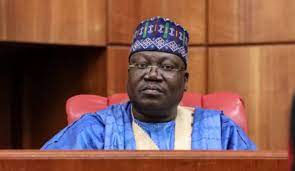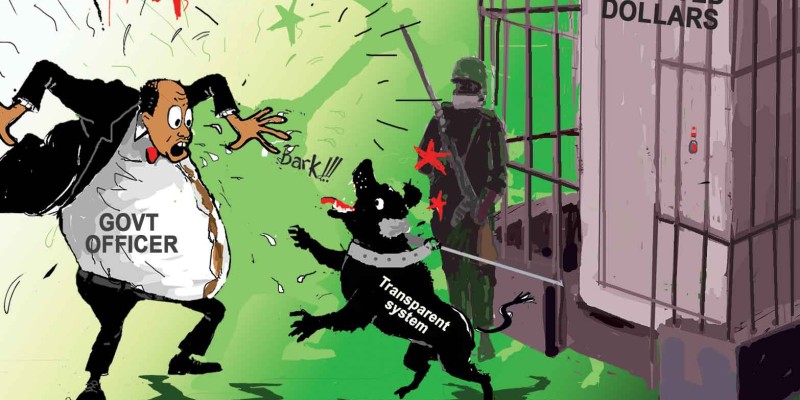As Nigeria struggles under the huge debt overhang of $92.626 billion or N38 trillion, the Senate says it will step up its supervision of the revenue-generating agencies for improved performance so as to look inward and cut dependence on borrowing. To start with, the federal lawmakers will meet with the revenue agencies including the Nigeria Ports Authority (NPA), Nigeria Customs, Federal Inland Revenue Service (FIRS) and others this January or next month to discuss the improvement of revenue collections. Ahmad Lawan, President of the Senate stated Wednesday during his birthday celebrations that the senate would support, supervise the agencies and keep them on their toes "for us to have more revenues in order to reduce the level of borrowing". Nigerians have complained about the persistent borrowings which have increased the debt stock and denied the country of funds for development as a huge sum of money is earmarked for debt service annually.
For 2022 alone, the Nigerian government projected a sum of N3.61 trillion for debt servicing, representing 34 per cent of the total N10.74 trillion revenue. "This year, we are going to have engagements with the revenue-generating agencies such as the NPA, Customs, FIRS and others on a quarterly basis, to have their targets set for them, and we want them to come and brief us on their performance every quarter", stated Lawan who said the lawmakers will want to see how to make a positive difference in the area of revenue generation "We hope to start the first meeting, which is exploratory, either this month or early February," the President of the Senate said. The nation's debt as of September 2021 stood at N38 trillion according to the Debt Management Office (DMO), a figure that could increase this year given the approval at the twilight of 2021 by the federal lawmakers of another set of borrowing.
Data from the Debt Office shows the debt stock that covers both foreign and domestic debts of the Federal Government, the 36 State Governments and the Federal Capital Territory rose by ₦2.540trillion in three months from June 30 to September 30, 2021. Speaking further, Lawan said the upper chamber in the first quarter of 2022 will address the challenges of revenue generation, collection and remittance to shore up earnings by the federal government. "An improvement to the country's revenue figures will reduce Nigeria's dependence on external borrowings for the execution of capital projects captured in the national budget. "We still have a huge responsibility, and in fact, it is something that we wanted to do last year, but because of the COVID-19 pandemic we couldn't do so. This year, by the grace of God, we are going to resuscitate that plan and it is to keep and maintain focus on revenue generation, collection and remittance".
Lawan says Nigeria's revenue to GDP ratio is very low, noting the economists ascribed the country's problem to revenue and not debt. "So, if that is the case, it means those of us in government must focus on dealing with the challenges of revenue generation, revenue collection and remittance. "Nobody likes taking loans, borrowing or accumulating debts, whether as an individual, a family, a community or as a country."But what can you do when you're not able to generate enough? We are as concerned as anybody else about our level of borrowing, even though we have not saturated, but if we can do better why not reduce, and the best way to reduce is to get more revenues from especially independent sources. The Senate president says revenue in the region of a trillion or triple that amount is expected from government-owned enterprises for the budget in 2022/.
It would be recalled that the Senate in mid-December 2021 approved the sum of $5,803,364,553.50 and a grant component of $10 million under the 2018-2020 External Borrowing (Rolling) plan after the consideration of a report by the Committee on Local and Foreign Debts. Breakdown of the approval by the Chairman of the Committee, Senator Clifford Ordia, shows $2,300,000,000 would be sourced from the World Bank, $2,300,000,000 from the German Consortium, $90,000,000 from the Islamic Development, 786,382,967 from the China Exim Bank, $276,981,586.50 from the Bank of China, and $50,000,000 from the International Fund for Agricultural Development. (IFAD).
Culled from insidebusiness









